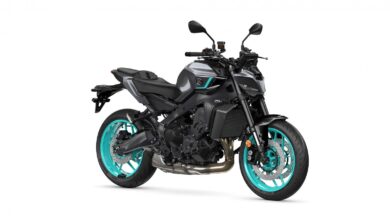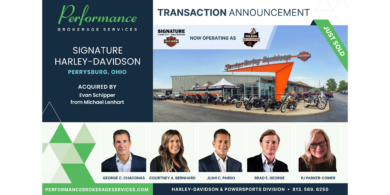Jun. 14, 2010 – Controversy surrounds national PWC race tours
It’s common knowledge that the current version of PWC racing’s national tour is far removed from the glory days of the late 1980s and ’90s. Now, a second national tour may serve to divide those loyal racers contesting and promoting the sport in already tough economic times.
Some see it as a potentially fatal blow to a form of motorized racing that is struggling to stay relevant and attract a short list of sponsors. Others, however, contend that competition will ultimately improve the breed in the long run.
Can PWC racing survive the split? We turned directly to the key players for answers.
How We Got Here
The story of how PWC racing got to this point is filled with “he said, she said” commentary, but the takeaway is that promoter Patrick Mell and the American PowerBoat Association tour were first, weathering the storm as PWC racing attempted to rebuild itself from the once-dizzying heights it enjoyed when Budweiser was a title sponsor and ESPN broadcast events to millions of viewers. Mell’s APBA National Tour relied on local promoters, like Upstate Watercraft Promotions’ AJ Handler, to organize individual events on the tour.
That’s what these two men have in common — and what ultimately drove them apart.
Like all disputes, the rift between Mell and Handler has two sides, but the end result is the pair parted ways. Mell continued on with the APBA series, while Handler chose to expand his own Upstate Watercraft Promotions (UWP) and stage the UWP IJSBA National Tour, a direct competitor to the APBA’s existing tour. Confusing the issue is both are essentially sanctioned by the International Jet Sports Boating Association.
Whether that’s a good or bad thing depends on whom you ask. As you might expect, Mell sees it as a negative.
“Two tours is the worst thing possible for the sport,” he says. “All it does it split up the racers, and racers cannot afford to go to both.
“The sport of PWC racing is hurting for many reasons. One is that there is very little OEM support. Others are that the cost to build a competitive race boat is very high. (There’s also) travel costs, the cost of gas and the economy, to name just a few. The only way for promoters to be profitable putting on races is to find sponsors. The promoters that have been able to find support out of the industry are surviving, but barely. Ones that relied solely on racer entry fees are gone.”
Mell’s comments, particularly when it comes to the sponsor situation, would make it seem like starting another high-level tour would hurt all involved. Handler, however, sees it differently. From his viewpoint, it all boils down to good-old-fashioned competition improving the breed.
“It’s a good thing for the sport,” counters Handler, “because it gives athletes the opportunity to choose where they want to go. What it does is makes us work a lot harder for that customer, like any other business.”
In Handler’s view, the strong will survive, and that will make the sport of PWC racing better in the long run for all involved. He points to guaranteed, high-dollar purses (Handler is promising $10,000 total purse at each event, while Mell is promising a $30,000-plus payout at his tour’s Belle River, Canada stop) and better TV coverage as examples of positive change that has already resulted from the competition between the two series.
“How could that not be a good thing?” Handler asks. “The bottom line is I want to see the sport grow. I think it’s been stagnant, but now it’s starting to move forward again.”
The Strong Will Survive?
But can the sport of PWC racing handle the controversy, and the divisions, it will cause?
No says Tim McKercher, who heads up Sea-Doo’s racing program. “Having two entities of any sport weakens it as a whole,” said McKercher. “If you want to weaken something, split it into two. It is the worst long-term and short-term strategic move for all involved.
“There are so many examples of failure – USFL vs. NFL, IRL vs. CART – and no substantial examples of successes. The only place something like this works is in a sport or business that is growing so fast it needs more outlets. PWC racing is certainly not in that situation. There is not enough racers, and much less sponsors to support two tours. There is barely enough for one.”
“No motorsport has ever been successful with two national tours,” agreed racer Eric Lagopoulos. “It splits the riders and is not a good thing for anyone involved.”
Still, it could be argued that a brief time of two competing series has ultimately made the survivor that much better. Many observers would probably argue the brief run of the American Basketball Association likely improved the success of the National Basketball Association once the latter absorbed the former. Could the same result happen with PWC racing? Lagopoulos clearly hopes the answer will be yes.
“Hopefully one strong tour will emerge and the sport can grow again to its earlier glory years.” psb




